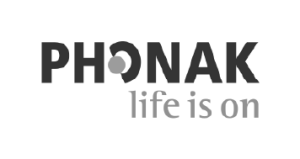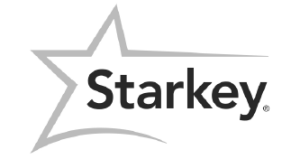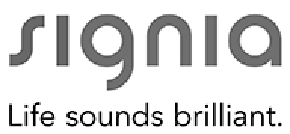Child Hearing Assessment Services
The Ear & Hearing Clinic is the Infant Hearing Program location for Waterloo Region. We see children of all ages both through this program and privately.
All children born in Ontario are eligible for hearing screening. Locally, this may take place in the hospital or at a KidsAbility location. If your child fails their infant hearing screening or if there are medical concerns that are known to sometimes be associated with hearing loss, they will be referred to us.
If there is ever concern about a child’s hearing, it is a good idea to have their hearing tested. Often concerns arise because of delays in speech and language development, frequent ear infections, or behavioural difficulties. Even if you do not have strong concerns about your child’s hearing, it is a good idea to set them up for success by having their hearing checked before school entry.
The Ontario Infant Hearing Program (IHP)
The Ontario Infant Hearing Program (IHP) is a province-wide program of the Ministry of Children and Youth Services. Every year in Ontario, nearly four in 1,000 babies are born deaf or hard of hearing. Finding out early means that they can get the help they need right away.
Child Hearing Assessment
Ear and Hearing Clinic audiologists are the region’s pediatric experts! From birth through age 18, children have different needs than adults when it comes to their hearing health.
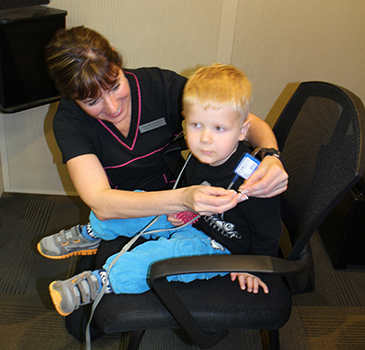
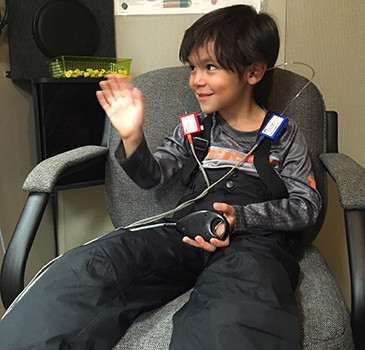
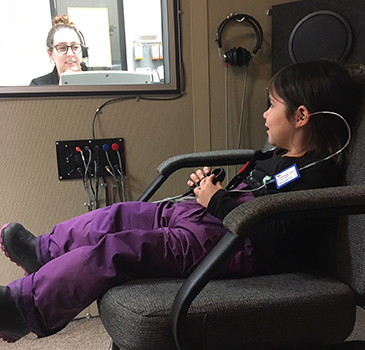
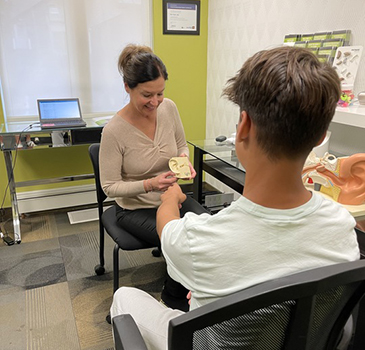
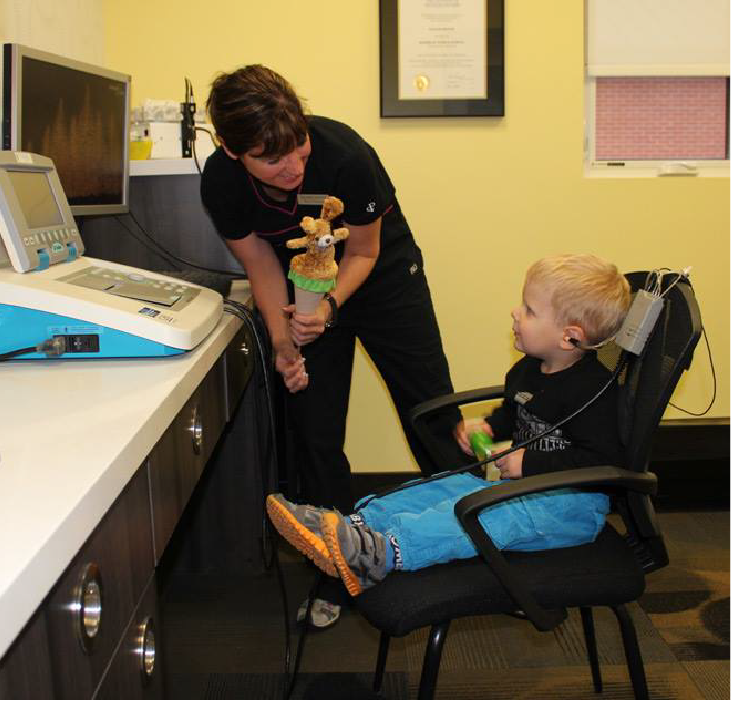
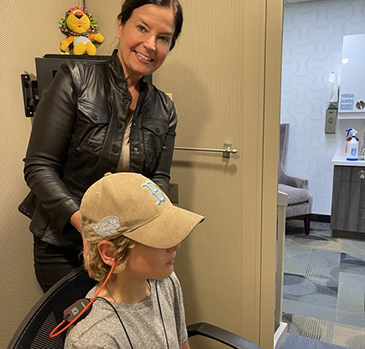

Did You Know?
Every year in Ontario, nearly four in 1,000 babies are born deaf or hard of hearing. More lose their hearing later as they grow. Many of these children may need to learn speech and language differently, so it’s important to detect hearing loss as early as possible.
Book Your Hearing Health Check Appointment
Book your appointment by calling or texting 1-833-669-4425.
Frequently Asked Questions (FAQs)
What happens during a child hearing assessment at the Ear & Hearing Clinic?
During a child hearing assessment, our audiologists will examine your child’s ears and evaluate their middle ear function. These tests may involve placing a foam or rubber tip (similar to an earbud) in the ear to measure responses to sound. The specific tests used will depend on your child’s age and developmental stage.
What types of hearing tests are used for children?
We utilize various hearing tests tailored to your child’s age and needs, including:
- Auditory Brainstem Response (ABR) Test: Assesses the auditory nerve’s response to sound.
- Otoacoustic Emissions (OAE): Measures sound waves produced by the inner ear in response to stimuli.
- Tympanometry: Evaluates the middle ear’s function and the mobility of the eardrum.
- Behavioral Audiometry: Assesses a child’s response to sound stimuli.
These tests help determine the presence and type of hearing loss
At what age should my child have a hearing assessment?
It’s recommended that all children have their hearing screened by the age of 1 month. If your child did not pass the newborn hearing screening or if you have concerns about their hearing, it’s advisable to schedule an assessment as soon as possible. Early detection is crucial for effective intervention.
How can I prepare my child for a hearing assessment?
To help your child feel comfortable during the assessment:
- Schedule the appointment when your child is likely to be alert and in a good mood.
- Bring a favorite toy, snack, or video to keep them calm during quieter moments.
- If possible, avoid bringing other children to the appointment to minimize distractions.
- Familiarize your child with having something in their ears by using headphones or earbuds during enjoyable activities. Ear & Hearing Clinic
What should I do if my child missed the newborn hearing screening?
If your child missed the newborn hearing screening, it’s important to have their hearing assessed as soon as possible. The Ontario Infant Hearing Program (IHP) offers screening for infants up to 8 weeks old. If your child is older, the Ear & Hearing Clinic provides private screening and assessment services.
Why is early hearing detection important?
Early detection of hearing loss allows for timely intervention, which is crucial for speech, language, cognitive, and social development. Identifying hearing issues early, preferably before 6 months of age, enables your child to receive the necessary support and resources to thrive.

